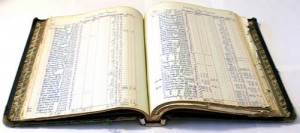All too often, creditors in bankruptcy get a notice of filing and they quit.
They assume they have neither rights nor alternatives with respect to their claim against the debtor.
Not (entirely) so.
Creditors in bankruptcy are entitled to:
- Share in any distribution from the bankruptcy estate according to the priority of their claim. Most unsecured , non wage claims come low in the priority scheme, and may receive little or nothing.
- Be heard by the court in matters concerning the debtor’s plan (in chapters 11, 12, and 13), the liquidation of the debtor’s non exempt assets, and payments from the assets of the estate.
- Challenge an individual debtor’s right to a discharge or to discharge the creditor’s particular debt.
What should a creditor do now?
Cease any collection action, including telephone calls, billing or law suits that might be pending against the debtor. The automatic stay protects the debtor and his property from all forms of collection during the bankruptcy. In Chapter 13, the stay also protects co debtors on consumer debts.
File a claim with the court. The notice of the bankruptcy sent by the court clerk tells you where to file a proof of claim and the deadline for doing so. Act promptly since deadlines are strictly enforced in bankruptcy case.
How to find all the info in the court’s notice
Attach a copy of any contracts or judgment concerning your claim, or a summary of the claim, if the supporting documents are voluminous to the proof of claim form. Get the claim form on line if the court did not send one to you.
Does your claim have a priority for payment?
Understand the chapters of bankruptcy
Consider whether your claim is dischargeable. Certain kinds of claims are non dischargeable in an individual’s Chapter 7 bankruptcy case. Examples of nondischargeable claims are certain obligations arising in divorce, debts incurred by fraud or willful and malicious acts by the debtor, or damages arising from drunk driving.
Consult a lawyer promptly if your claim arguably falls in one of those categories. You must file an adversary proceeding in the bankruptcy case to preserve your claim after bankruptcy: the time lines are very short in bankruptcy.
The complete list of debts not dischargeable in Chapter 7 is found in 11 U.S.C. 523.
More: fight the discharge.
For special considerations affecting family law debts, see our family law page.
Determine whether your claim is secured by the debtor’s assets Secured creditors have a lien giving them specific rights to the property which is the collateral for their claim. Most often, those rights are created by, and described in, a deed of trust on real property, a security agreement on personal property, or a judgment lien.
Secured creditors have the best chance of getting relief from the automatic stay or “adequate protection payments” to prevent a decline in the equity available to secured their claim. Read more about relief from stay.
Share information with the trustee. If you suspect that the debtor’s schedules aren’t telling the whole story, that assets are concealed or have been transferred, contact the trustee and provide any documents or facts that might help the trustee recover money for the estate, or challenge the debtor’s right to a discharge.
Creditor vigilance is the best deterrent to abuse of the bankruptcy system. Creditors are entitled to question the debtor under oath about assets, liabilities and financial history at the first meeting of creditors or by separately scheduled examinations under Rule 2004 of the Federal Rules of Bankruptcy Procedure.
More about role of trustees
Monitor the progress of the case. Some bankruptcies are dismissed for the debtor’s failure to comply with the requirements of the Code. When that happens, creditors are free to pursue collection according to state law. Sometimes cases originally classified as “no asset” cases blossom into asset cases from which a dividend may be paid.
Make sure the court has your current address until the case is closed so that you get notice if there will be a dividend.
More on creditors in bankruptcy
When you need to act to preserve your claim
What happens at the first meeting of creditors
Image courtesy of edinburghcityofprint.

